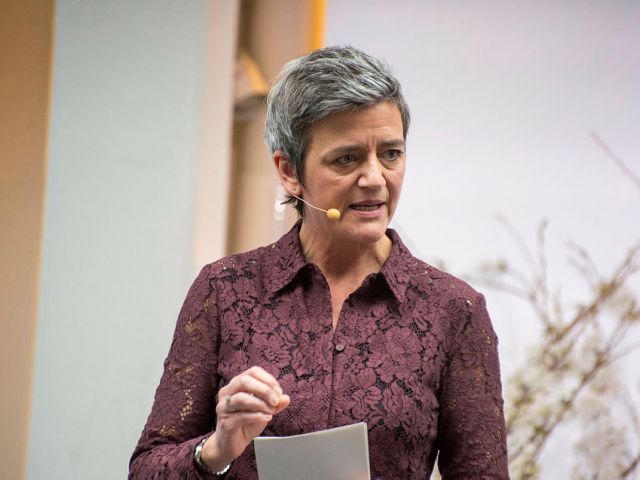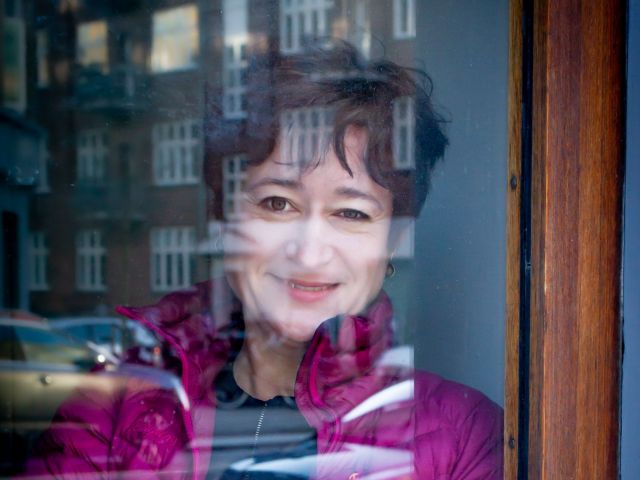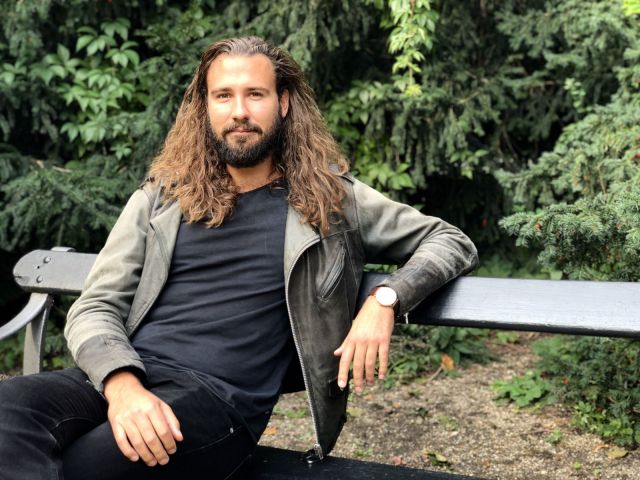CBS is prevented from fulfilling Denmark’s National Open Access strategy

(Illustration by Emil Friis Ernst)
Realistically, international scientific publishers’ embargo policies, are likely to prevent CBS and Denmark from achieving the goal of universal access to all peer-reviewed research articles from Danish research institutions from 2025 and onwards, claims CBS’ Director of Library and Campus Services. Universities Denmark believes that future contracts similar to the one settled with Elsevier will make it possible.
Denmark’s National Open Access strategy aims to give all citizens, researchers and companies unhindered digital access to all peer-reviewed research articles from the Danish research institutions with a 12-month maximum delay, from 2025 and onwards.
The latest figures from the Ministry of Higher Education and Science show that there is open access to 60% of the scientific articles from the Danish universities. This is 3% behind the strategy, which aims to reach 63% by 2021.
And if you ask René Steffensen, Director of Library and Campus Services at CBS, it is unrealistic for Denmark to meet its own strategy by 2025. In fact, CBS is already lagging behind in fulfilling its part of the deal. At the moment, open access covers 50% of CBS research, and not 63%, which is the strategy target at this point.
“The international publishers’ embargo policies will make crossing the finish line difficult. CBS, in particular, will be unable to meet the desired open-access percentages due to the embargoes, which sometimes last up to three years. And the problem is most pronounced within social sciences and humanities, the two areas where CBS publishes most of its research,” he says.
A press release from the Ministry of Higher Education and Science states that 17% of the scientific articles from the universities are blocked from open access, either because the international publishers will not allow it, or because the embargo periods extend to two years or more.
“CBS has many articles in journals that block open access,” the press release points out.
Alternative access?
In 2014, Denmark announced its new Open Access strategy, which is based on a so-called Green Open Access model. This model aims to parallel publish scientific articles from quality-assured journals in a digital archive – repository – from where all interested parties can access the article.
Only a year after the strategy was launched, the IT University reached open access to 100% of its research articles, but for universities like CBS and Aarhus University, scientific publisher’s embargo periods are throwing a spanner in the works and preventing strategy goals from being reached.
When researchers’ scientific articles are published in academic journals, often the journals set an embargo period during which access to academic journals is not allowed for users who have not paid for access or have access through their institution. This is how publishers ensure revenue, although we – Danish taxpayers – have already paid for most research already.
And this is why René Steffensen thinks it will become even harder yet for CBS to reach the ambitions of the national strategy.
“If we are to meet the goal, it will take new agreements with the publishers, so that either the researchers can publish the piece with open access directly through the publishers or to a parallel publication in a digital archive with no embargos,” he says.
Asked whether there are alternatives to the international scientific publishers, René Steffensen explains that alternatives exist. For example, the EU has created a publishing platform independent of scientific publishers. Here, researchers backed by EU funding can publish their results and have them peer-reviewed in an open peer-review system.
“The issue with a platform like that is that it’s not recognized in the universities’ publication strategies. So publishing through that kind of platform gives you no merits as a researcher,” says René Steffensen.
New agreements
Jesper Langergaard, Director of Universities Denmark, acknowledges that the international scientific publishers play a significant role in fulfilling the national open access strategy. However, the embargoes are a burden.
“It is a nuisance for researchers to have these paywalls that sometimes continue for long periods of time, as you just want your research and knowledge to be accessible right away. It’s unsuitable,” he says.
In January 2021, Denmark agreed on a four-year contract with one of the biggest scientific publishers, Elsevier, worth DKK 295,872,960. The new contract is the first of its kind in Denmark to ensure full reading access to Elsevier’s journals, and open access to articles published by researchers at the institutions covered by the agreement.
“The publishers create opportunities, but also limits in terms of getting on with open access. Therefore, the agreement with Elsevier from January is important if we want to reach our goal for open access with no delays in access to research articles,” says Jesper Langergaard.
He explains that Universities Denmark have more negotiations with scientific publishers ahead of them, and here Universities Denmark will demand direct access to scientific articles as well.
“If we can continue this line and obtain what we achieved with the Elsevier agreement, the future looks bright, in my opinion,” he says.
Is pursuing these kinds of agreements realistic?
“It’s hard to tell, but we will continue the negotiations with direct access and if we succeed, that’s amazing,” he says.
You can follow the development in Denmark’s and the universities’ levels of open access at oaindikator.dk.






































































































































Comments